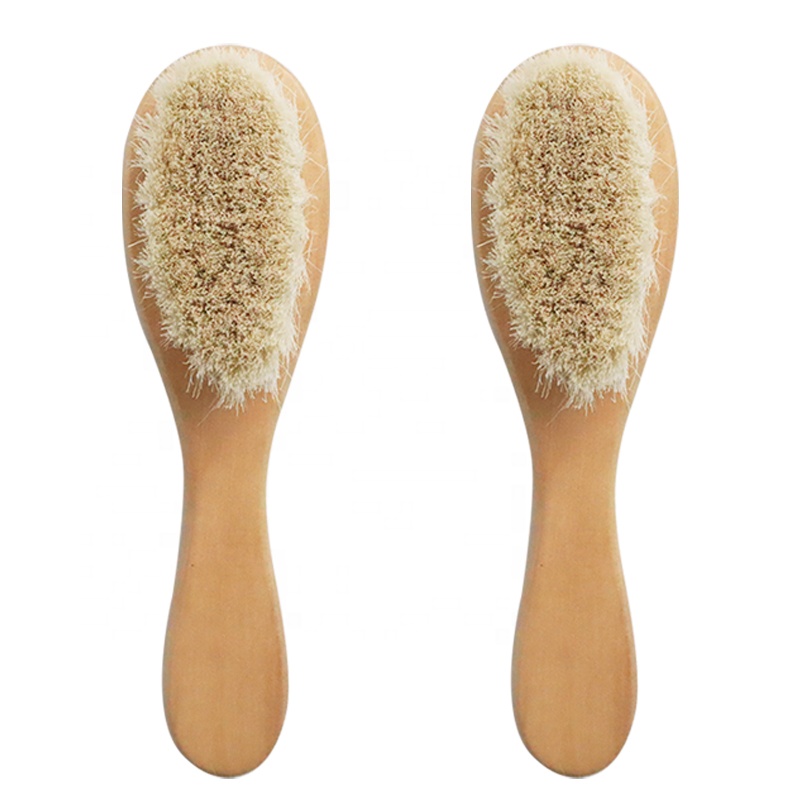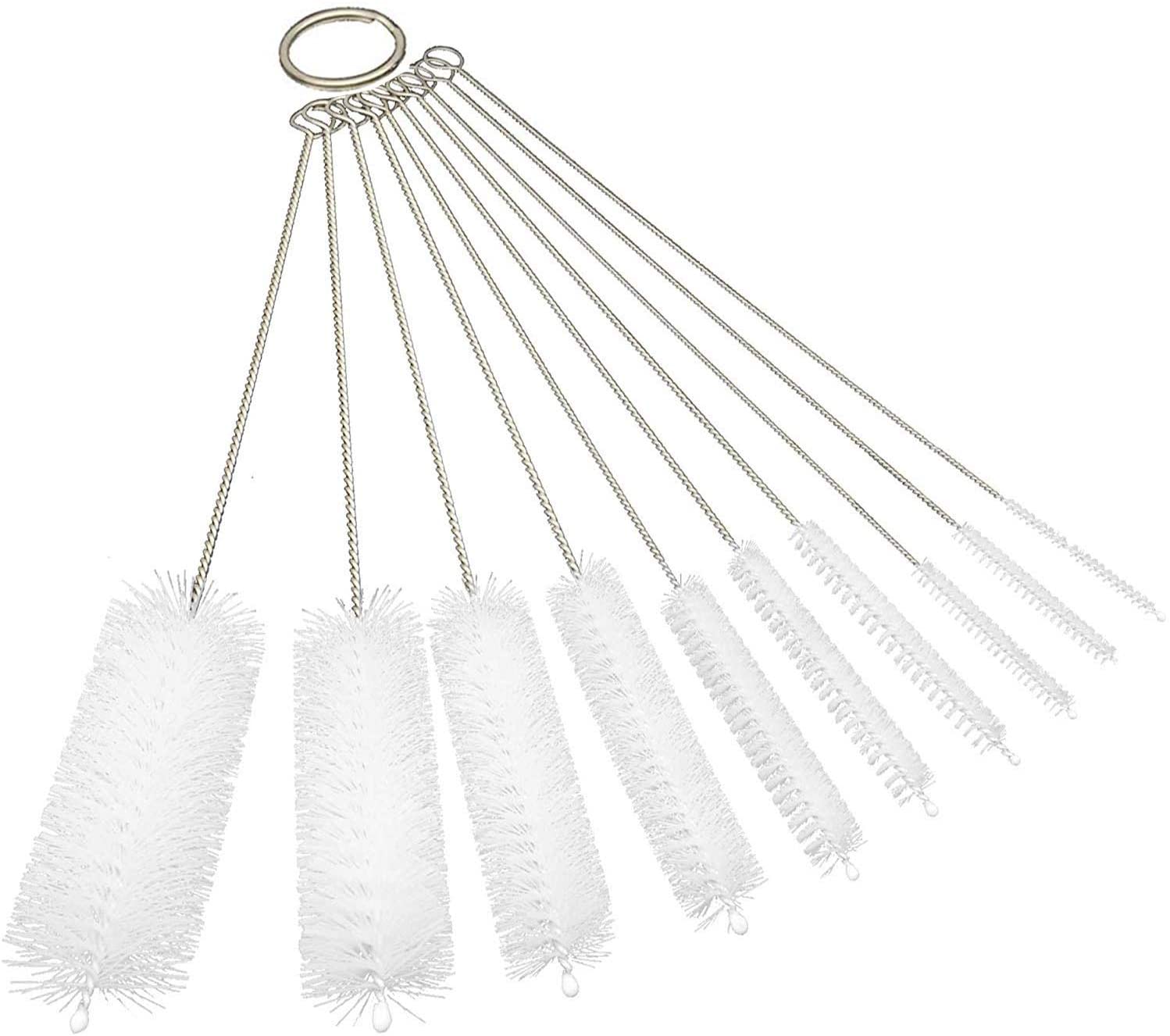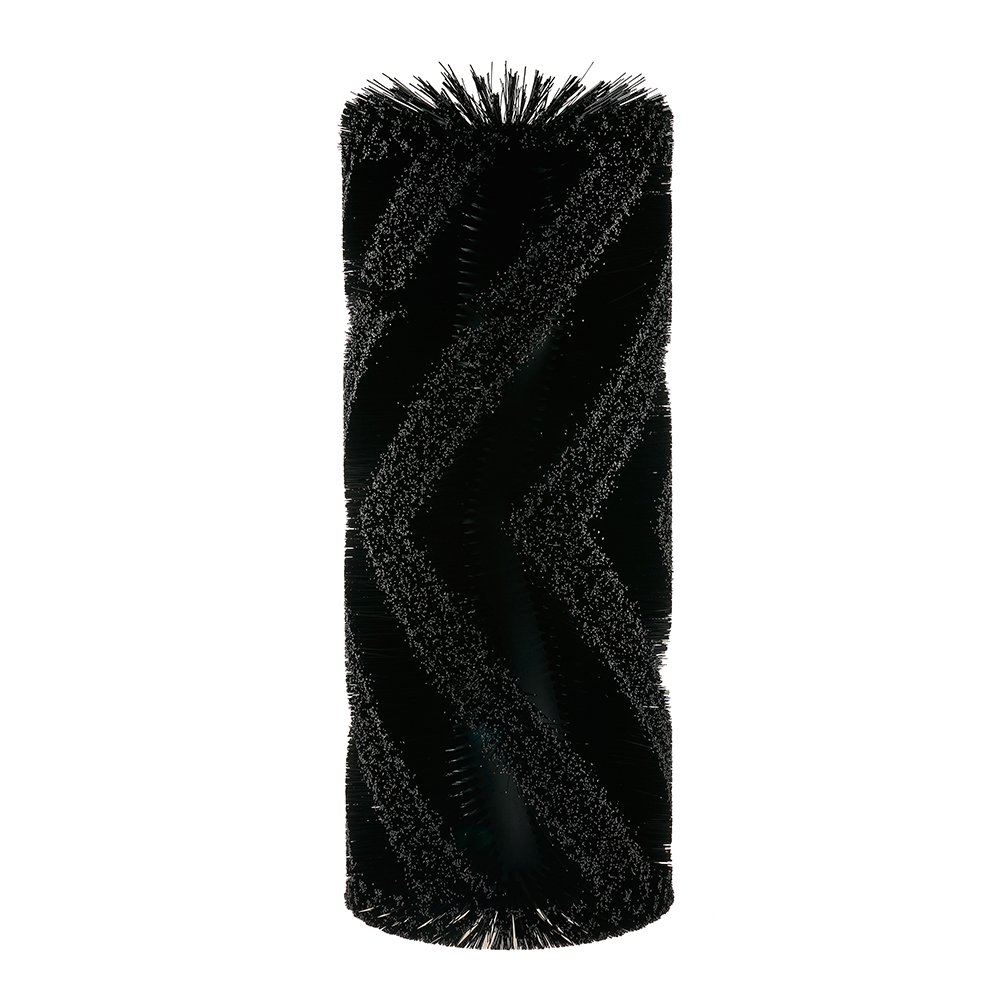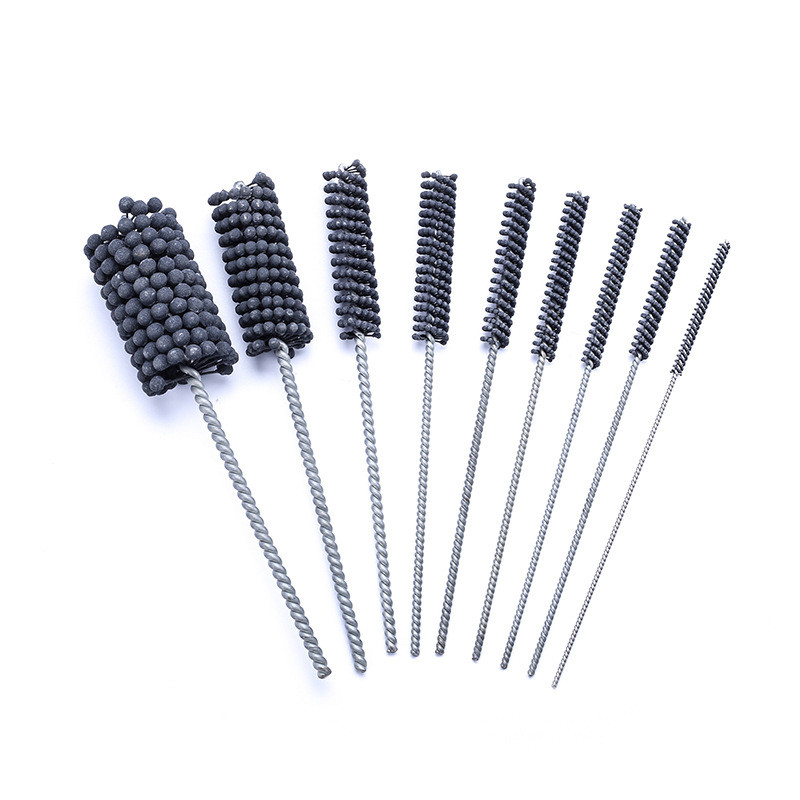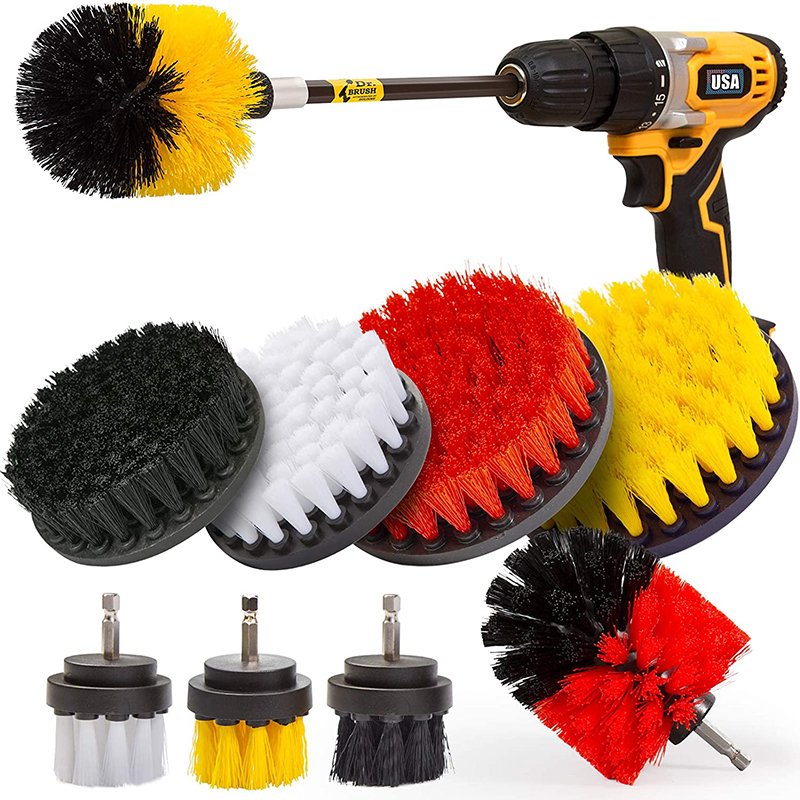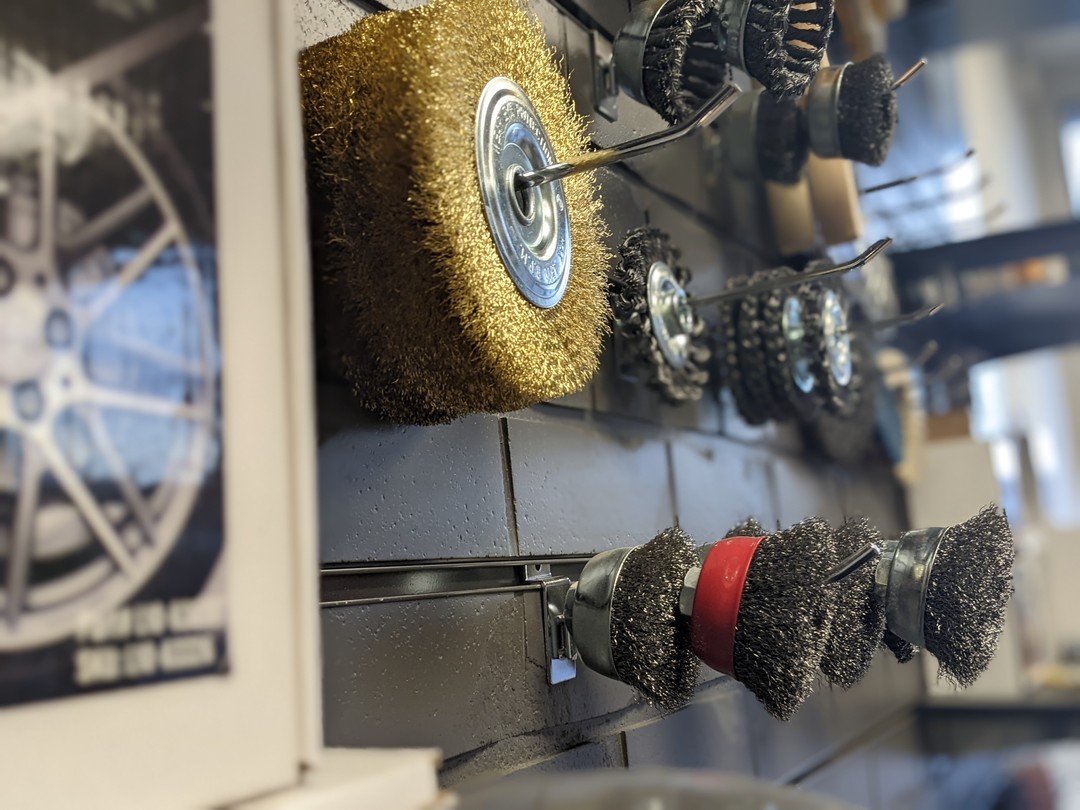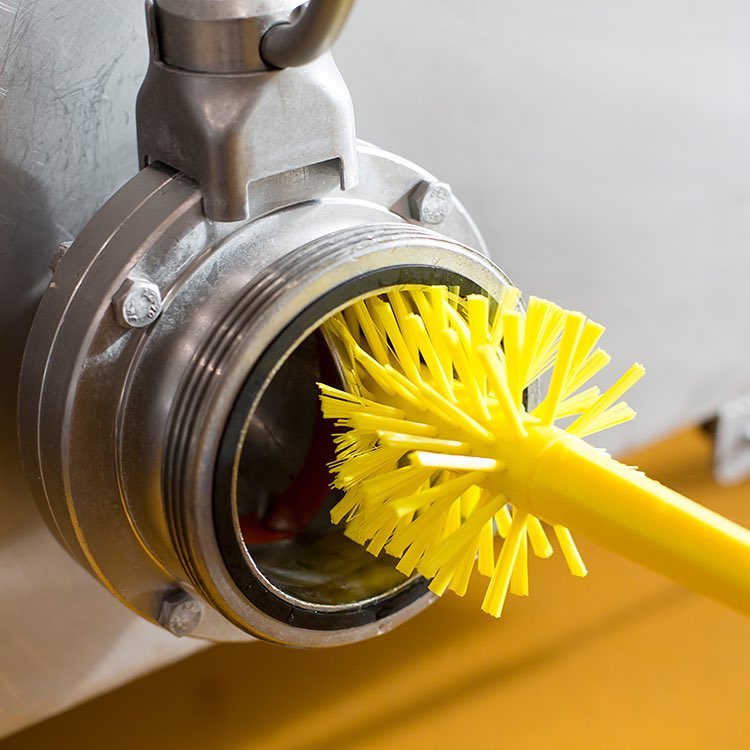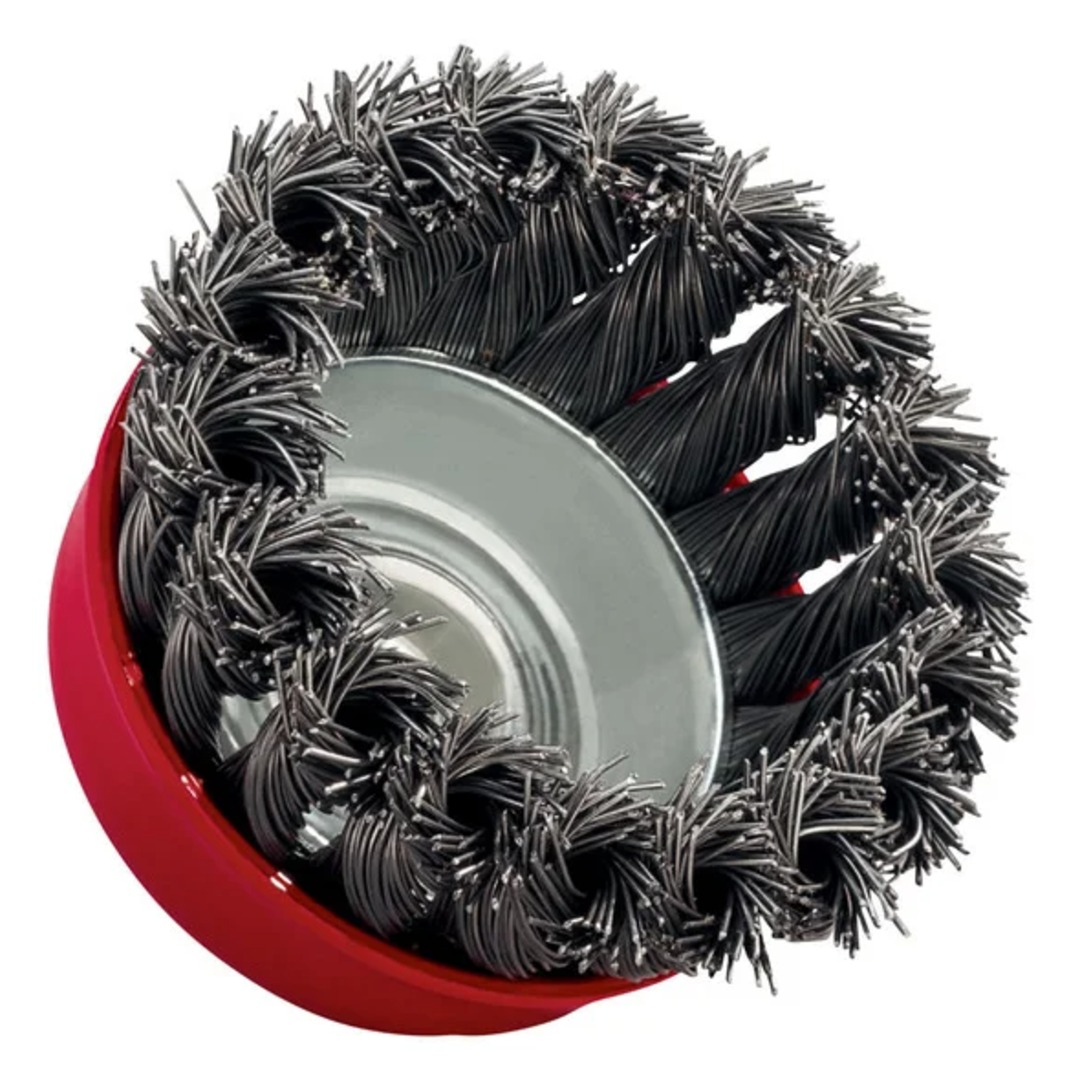Tabl Cynnwys
Introduction to Industrial Brushes
O ran cynnal a chadw, glanhau a sgleinio peiriannau, rhannau neu arwynebau diwydiannol, brwsys diwydiannol yw'r offer hanfodol sydd eu hangen i wneud y gwaith yn effeithlon. P'un a ydych chi'n edrych i sgwrio arwynebau'n ysgafn neu ymdrin â thasgau glanhau mwy heriol, mae brwsys diwydiannol ar gael mewn gwahanol feintiau, siapiau a deunyddiau i weddu i wahanol anghenion. Mae'r brwsys hyn wedi'u hadeiladu ar gyfer cymwysiadau dyletswydd trwm, gyda dyluniadau arbennig wedi'u teilwra ar gyfer prosesau lluosog, megis glanhau, dad-lwmpio, sgleinio a mwy.
In this article, we will explore the world of industrial brushes, looking at their different types, materials, key characteristics, and wide-ranging applications. Understanding how industrial brushes work and their specific uses can make all the difference in achieving top-notch results in various industrial processes. We will also provide valuable insights into selecting the right brush for your tasks and offer advice on their care and maintenance.
What Are Industrial Brushes?
Industrial brushes are specialized tools used in various sectors to clean, polish, deburr, and prepare surfaces. These brushes typically consist of bristles, which are made from either natural or synthetic materials, attached to a handle or backing. Depending on the purpose of the brush, they can be made from materials such as stainless steel, brass, bronze, wire, polyester fibers, nylon filaments, or even abrasive products like sandpaper.
The main function of industrial brushes is to provide cleaning and surface preparation, but their applications go beyond that. They are used to polish surfaces, prepare materials for further processes (like painting or welding), deburr metal parts, remove contaminants, and much more. Industrial brushes are indispensable in manufacturing, automotive, aerospace, and construction industries, as well as in other areas where maintaining clean, smooth surfaces is crucial.
Properties of Industrial Brushes
Industrial brushes come in a wide variety of materials, each tailored to specific tasks. The properties of the material used for the bristles determine how effective the brush will be for a given application. Let’s take a look at some of the most commonly used materials in industrial brushes:
1. Neilon
Nylon is a versatile synthetic material that is often used for making industrial brushes. Nylon brushes are flexible and durable, making them suitable for cleaning delicate surfaces without causing scratches. Nylon bristles are also resistant to wear and can endure exposure to chemicals and moisture, which makes them perfect for industrial environments.
2. Stainless Steel
For tougher cleaning tasks, stainless steel wire bristles are often used. These brushes are ideal for heavy-duty cleaning, deburring, and removing rust or other contaminants from metal surfaces. Stainless steel brushes are highly durable and can withstand high temperatures, making them perfect for demanding applications like cleaning industrial machinery and metalworking processes.
3. Brass
Brass brushes are commonly used for cleaning softer metals, such as aluminum, without damaging the surface. Brass bristles are softer than steel, making them an excellent choice for situations where gentleness is required without compromising on performance.
4. Polyester and Other Synthetic Fibers
Polyester and other synthetic fibers are used to create brushes that can withstand heavy wear while offering flexibility. These brushes are often used in cleaning delicate equipment or for polishing, as the softer fibers can provide a smooth finish without damaging the underlying surface.
5. Abrasive Products
Some industrial brushes come with embedded abrasive particles like sandpaper or grit. These brushes are ideal for cleaning or polishing surfaces where you need to remove layers of material or smooth rough edges. These abrasive brushes are commonly used in metalworking or when preparing surfaces for painting or coating.
Key Characteristics of Industrial Brushes
The characteristics of industrial brushes play an important role in their efficiency. When choosing the right brush for a job, it’s essential to consider factors such as the size, shape, bristle density, and the overall design of the brush. These factors determine how well the brush will perform and how versatile it will be for different applications.
1. Bristle Size and Shape
The size and shape of the bristles determine the level of abrasion and the amount of surface area that the brush can cover. For example, stiff brushes with large bristles are ideal for heavy-duty cleaning tasks, while softer brushes with finer bristles are better for polishing or cleaning delicate surfaces.
2. Bristle Density
The density of the bristles affects the amount of pressure that can be applied and how well the brush covers a surface. Brushes with higher bristle density are ideal for removing heavy buildup or for deburring, as they provide more contact with the surface. On the other hand, brushes with lower density bristles are often used for gentler cleaning or polishing tasks.
3. Brush Shape
Industrial brushes come in various shapes, including cylindrical, flat, and wheel-shaped. The shape of the brush will determine how easily it can access hard-to-reach areas or work with specific tools or machinery. For example, wheel brushes are ideal for cleaning round surfaces or moving parts, while flat brushes can be used for scrubbing large, flat surfaces like conveyor belts.
Applications of Industrial Brushes
Industrial brushes are highly versatile and can be used in a wide range of applications. Some of the most common uses include:
1. Cleaning Machinery
Industrial brushes are often used to clean machinery and equipment, removing dirt, grease, and debris that can hinder performance. These brushes are essential for keeping machinery running smoothly and preventing wear or damage caused by contaminants.
2. Polishing Surfaces
Many industrial brushes are designed for polishing and finishing surfaces. Whether you’re working with metal, wood, or other materials, a brush with fine bristles can help achieve a smooth, polished surface. Polishing brushes are commonly used in industries like automotive and metalworking.
3. Deburring Metal Parts
Deburring is the process of removing sharp edges or rough spots from metal parts, and industrial brushes are an excellent tool for this task. Brushes with stiff wire bristles or abrasive materials are used to smooth out edges and prevent injuries or further damage to the parts.
4. Removing Rust and Contaminants
Industrial brushes, particularly those made from stainless steel or brass, are great for removing rust, paint, and other contaminants from metal surfaces. These brushes help restore the surface, making it clean and ready for coating, welding, or further processing.
5. Surface Preparation for Painting or Welding
Before applying paint, coatings, or undergoing welding processes, it is essential to clean and prepare the surface. Industrial brushes are used to remove dirt, oils, and oxidation from metal surfaces, ensuring that the paint or weld bonds correctly.
Choosing the Right Industrial Brush
Selecting the right industrial brush can be challenging due to the wide variety of brush types, sizes, and materials available. When choosing a brush, consider the following factors:
- Material Type: Consider the type of material being cleaned. Soft materials may require softer bristles, while harder materials might need stiffer, more abrasive brushes.
- Surface Area: Think about the surface area that needs to be cleaned. Larger surfaces may require wider brushes, while intricate or hard-to-reach areas will benefit from narrower, more flexible brushes.
- Brush Characteristics: Pay attention to the brush’s density, size, and bristle stiffness to match the level of abrasion needed for your application.
Maintaining Industrial Brushes
Proper maintenance is essential to ensure that industrial brushes continue to perform effectively over time. Here are some important tips for maintaining your industrial brushes:
1. Glanhau Rheolaidd
After each use, it’s important to clean industrial brushes to remove debris, dust, and contaminants from the bristles. This will prevent buildup and ensure consistent performance.
2. Inspect for Damage
Regularly inspect your brushes for signs of wear, fraying, or damage. If the bristles are worn out or damaged, it’s time to replace the brush to maintain effective cleaning performance.
3. Proper Storage
Store industrial brushes in a clean, dry area to prevent deformation of the bristles. If brushes are stored improperly, the bristles may become misshapen or damaged, reducing their effectiveness.
Extra Features of Industrial Brushes
1. Dewisiadau Addasu
Industrial brushes can often be customized to meet specific requirements. Whether you need a brush with specialized bristles, an unusual size, or a unique shape, many manufacturers offer custom solutions tailored to your needs.
2. Durability and Longevity
Industrial brushes are designed for durability. They are built to withstand heavy-duty use in tough environments, ensuring that they can deliver consistent results over time. Some brushes are made with high-performance materials that can last for years, even in the harshest conditions.
Casgliad
Industrial brushes are essential tools for a variety of applications in industries such as manufacturing, automotive, aerospace, and construction. Their versatility, durability, and effectiveness in cleaning, polishing, deburring, and surface preparation make them indispensable in maintaining machinery and equipment. By understanding the different types of brushes, their characteristics, and their applications, you can choose the right tool for your specific needs. With proper care and maintenance, industrial brushes can provide reliable performance for years to come, making them a wise investment for any industrial operation.
Cwestiynau Cyffredin (FAQs)
1. How do I choose the right industrial brush for my application?
When selecting an industrial brush, consider the material being cleaned, the surface area size, and the level of abrasion required. It’s also important to choose a brush with the appropriate bristle type and shape to suit the specific task.
2. Can industrial brushes be customized?
Yes, many manufacturers offer customizable industrial brushes. You can tailor the size, shape, and bristle type to suit your specific application and requirements.
3. How do I maintain industrial brushes for optimal performance?
To maintain your industrial brushes, clean them after each use, inspect them for wear and damage, and store them properly in a dry, clean area to prevent deformation of the bristles.

